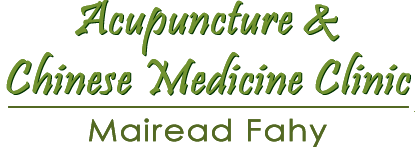Ginger is something we are all mostly familiar with- whether it is as the main ingredient in ginger ale, or as that fibrous root with the pale yellow color and spicy bite that lends its flavor to those delicious stir frys, Yum! Ginger makes a great additive to soy sauce or honey in marinades and can even be found as a sugary hard candy. But this root has a much deeper and richer history as a Chinese herbal remedy.
 Ginger is known as Sheng Jiang in Chinese herbal medicine and if you’ve ever put a piece of fresh ginger root in your mouth, you instantly recognize that its classification as a pungent, warm herb is spot on. In terms of what it treats, from a TCM point of view,it travels to the Lung, Spleen, and Stomach channels in the body and falls under the group of herbal medicines that are known to” Release the Exterior” in the case of a pattern or illness called “Wind Cold Invasion”. The Lung channel is the first port of call for invasion by “Wind”….a Chinese term often equated with the bacteria or virus that cause the common cold. The Cold aspect of a” Wind Cold Invasion” indicates that the patient is suffering from a cold that doesn’t involve sweating and usually has a tongue with a white coating. By opening the pores i.e. (Release the Exterior) and inducing sweating, which ginger certainly can do, you theoretically expel the pathogens and can decrease the amount of time a patient is struggling with the cold symptoms! Makes sense huh??.
Ginger is known as Sheng Jiang in Chinese herbal medicine and if you’ve ever put a piece of fresh ginger root in your mouth, you instantly recognize that its classification as a pungent, warm herb is spot on. In terms of what it treats, from a TCM point of view,it travels to the Lung, Spleen, and Stomach channels in the body and falls under the group of herbal medicines that are known to” Release the Exterior” in the case of a pattern or illness called “Wind Cold Invasion”. The Lung channel is the first port of call for invasion by “Wind”….a Chinese term often equated with the bacteria or virus that cause the common cold. The Cold aspect of a” Wind Cold Invasion” indicates that the patient is suffering from a cold that doesn’t involve sweating and usually has a tongue with a white coating. By opening the pores i.e. (Release the Exterior) and inducing sweating, which ginger certainly can do, you theoretically expel the pathogens and can decrease the amount of time a patient is struggling with the cold symptoms! Makes sense huh??.
Ginger also travels to the Spleen and Stomach channels; two channels that have a great deal to do with digestion. This is where ginger’s Chinese herbal medicine actions correspond closely with how Western medicine might use this herb. Ginger is a great anti-nausea and anti-emetic, or anti-vomiting, supplement. It is typically prescribed for nausea and vomiting related to motion sickness, pregnancy, or chemotherapy. Several studies involving powdered ginger have shown promise for motion sickness and even for those that showed that ginger didn’t perform significantly different from the anti-nausea medications, it is important to remember that ginger won’t cause the drowsiness associated with those pharmacological meds. When prescribed for morning sickness in pregnancy, ginger performed well and women who took 1 gram a day for 4 days (short term use is recommended) felt less nauseous and didn’t vomit as much as those that didn’t. Of course, it is always recommended for pregnant women to speak with their doctor before starting any herbal therapy.
Another potential medical usage is found in the relief of joint pain from osteoarthritis. This joint pain would most likely be dull and achy in nature and improve when warmth is applied to the area. This indicates that the joint pain is classified as Cold. Thus the warming nature of ginger would help decrease the pain when taken internally.
It must be mentioned that despite the superior effects of ginger, too much of the spicy, warming herb can irritate the digestive tract. Perhaps this is why it is recommended that patients take it internally as a powdered pill or tea instead of as a raw herb and moderate its long term usage.
Luckily ginger is readily found. Many people that consume ginger regularly take a powdered preparation of the root. It can also be used freshly sliced and placed into a cup of hot water or tea. This is one of my favourites when Im feeling a cold coming on! Try it! Youll sweat, but stop the cold in its tracks!. It is a commonly used spice and if you dont already use it, go out and get some today! Its invaluable for so many things. Anybody got any good recipes out there?

